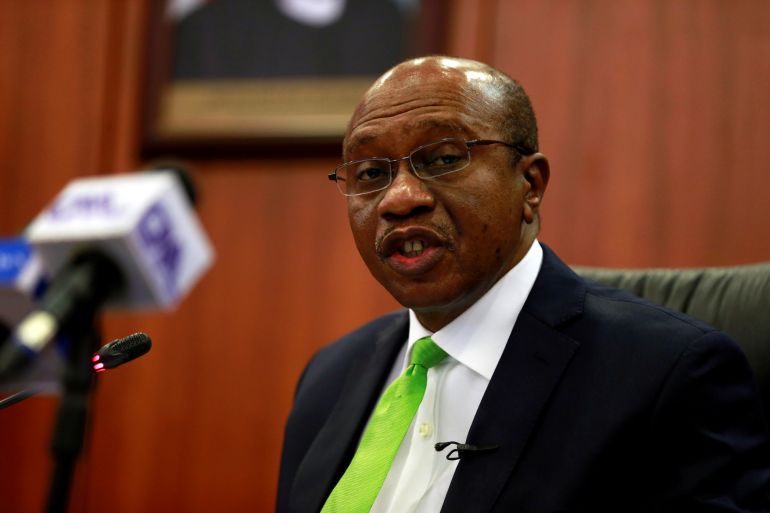Nigeria’s Supreme Court suspends Friday deadline for cash swap
The central bank wants to reduce cash in circulation to combat inflation, but a shortage of new bills has caused anger ahead of elections.

Nigeria’s Supreme Court has prevented the government from enforcing a Friday deadline for citizens to swap old banknotes for new ones as the International Monetary Fund (IMF) flagged disruptions to trade and payments.
Nigerians were due to turn in old 1,000, 500 and 200 naira banknotes (worth $2.17, $1.09 and $0.43) in exchange for newly designed notes by Friday as part of a central bank initiative to curb cash in circulation and control double-digit inflation.
Keep reading
list of 4 itemsWho is Folashodun Shonubi, Nigeria’s new central bank chief?
Nigeria’s new President Tinubu promises reset for ailing economy
‘Squandered goodwill’: How Buhari failed Nigeria a second time
The plan has caused controversy with people saying there are not yet enough new notes available, leading to chaotic scenes at banks and acute cash shortages.
Some politicians have criticised the deadline being set before February 25 elections for a new president and lawmakers because campaigns are funded by mostly hard-to-trace cash.
Supreme Court Judge John Inyang Okoro said Wednesday’s decision to suspend the deadline was unanimous, pending a legal challenge from three states who had argued that the note swap plan was causing hardship before the elections.
The court is due to hear the states’ challenge on February 15.
Earlier on Wednesday, the IMF’s resident representative in the country urged the Central Bank of Nigeria to consider extending the deadline given the disruptions caused by the shortage of new notes in a country where many people don’t have bank accounts.
In another argument for the currency swap, the central bank has said it would reduce fraud because the security features on the new notes will make them harder to counterfeit. The bank eventually wants to move towards a cashless economy.
About 1.3 trillion naira ($2.8bn) in old notes have been deposited into the bank since the announcement in October, it said.
Some ruling party officials have publicly accused the central bank of a plot to turn voters against Bola Tinubu, its candidate in the presidential election.
Tinubu is up against 17 other candidates, but he and three others stand out as frontrunners: the People Democratic Party’s Atiku Abubakar, the Labour Party’s Peter Obi and Rabiu Kwankwaso of the New Nigeria People’s Party.
President Muhammadu Buhari is not running because he will complete his constitutionally allowed two terms in May.
Inflation and a flailing economy are likely to be major issues for voters, many of whom say life is harder than when Buhari took office in 2015.